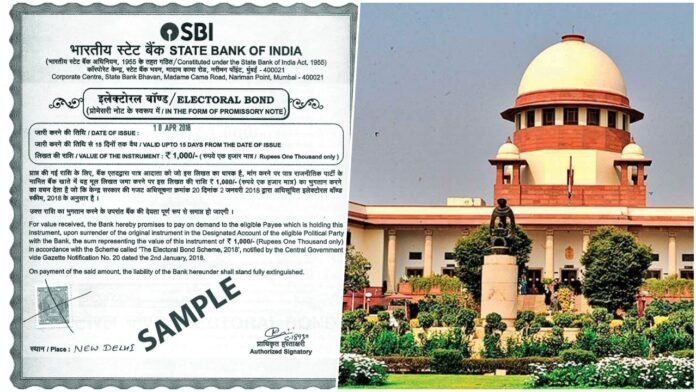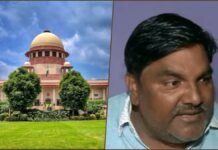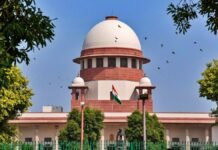
New Delhi: The Supreme Court of India on Thursday struck down the electoral bond scheme, a controversial mechanism for funding political parties, as unconstitutional. The apex court held that the scheme violates the fundamental rights of citizens to information, expression, privacy, and association.
What is the electoral bond scheme?
The electoral bond scheme was introduced by the government in 2017 as a way to curb black money in politics and to provide a transparent and legal channel for individuals and entities to donate to political parties. Under this scheme, electoral bonds are bearer instruments that can be purchased from designated branches of the State Bank of India (SBI) and donated to registered political parties. The bonds do not carry the name or any other details of the donor, and thus, ensure anonymity. The bonds have a validity of 15 days, during which they can be encashed by the political parties through their verified bank accounts.
Why did the Supreme Court strike down the scheme?
The Supreme Court delivered two separate but unanimous verdicts on a batch of petitions challenging the validity of the electoral bond scheme. The petitions were filed by various civil society groups, activists, and opposition parties, who argued that the scheme infringes on the right to information of the voters, who have a right to know the source of funding of the political parties. They also contended that the scheme enables backdoor lobbying and corruption, as it allows corporate entities and foreign sources to influence policy-making through anonymous donations. They further claimed that the scheme creates an uneven playing field for the opposition parties, who may not receive adequate funding.
The five-judge Constitution bench, headed by Chief Justice D Y Chandrachud, agreed with the petitioners and held that the electoral bond scheme is unconstitutional. The bench observed that the scheme violates the right to information and freedom of expression under Article 19(1)(a) of the Constitution, as it deprives the voters of essential information about the financial support given to the political parties. The bench also held that the scheme violates the right to privacy under Article 21 of the Constitution, as it infringes on the right to political privacy and association of the citizens, who may face intimidation or retaliation for their political affiliations. The bench further noted that the scheme undermines the principles of a participatory democracy, as it allows the donors of the bonds to gain access to political power and influence policy decisions.
The bench also rejected the arguments of the government and the SBI, who defended the scheme as a measure to reduce cash transactions and to encourage the use of banking channels for political funding. The Solicitor General, Tushar Mehta, had submitted that the scheme ensures confidentiality and prevents harassment of the donors. He had also produced a letter from the SBI chairman, stating that the details of the donors and the recipients of the bonds cannot be accessed without a court order. The bench, however, found these arguments to be untenable and said that the scheme does not serve the public interest. The bench also pointed out that the scheme is not the only way to curb black money in politics and suggested the exploration of alternative measures.
What are the implications of the verdict?
The Supreme Court’s verdict has significant implications for the political funding system in India. The court has directed the SBI to disclose the details of the electoral bonds issued and redeemed since April 12, 2019, to the Election Commission of India (ECI) within two weeks. The ECI will then share this information with the public on its website. The court has also ordered the political parties to file returns on the electoral bonds received by them to the ECI within four weeks. The court has further banned the issuance of any new electoral bonds by the SBI with immediate effect.
The verdict is expected to bring more transparency and accountability in the political financing and to empower the voters to make informed choices. It may also reduce the influence of corporate and foreign interests in the policy-making and to restore the level playing field for the opposition parties. However, the verdict may also pose some challenges for the political parties, who may have to find alternative sources of funding and to deal with the possible backlash from the donors. The verdict may also trigger a debate on the need for electoral reforms and the role of the ECI in regulating the political funding.















































